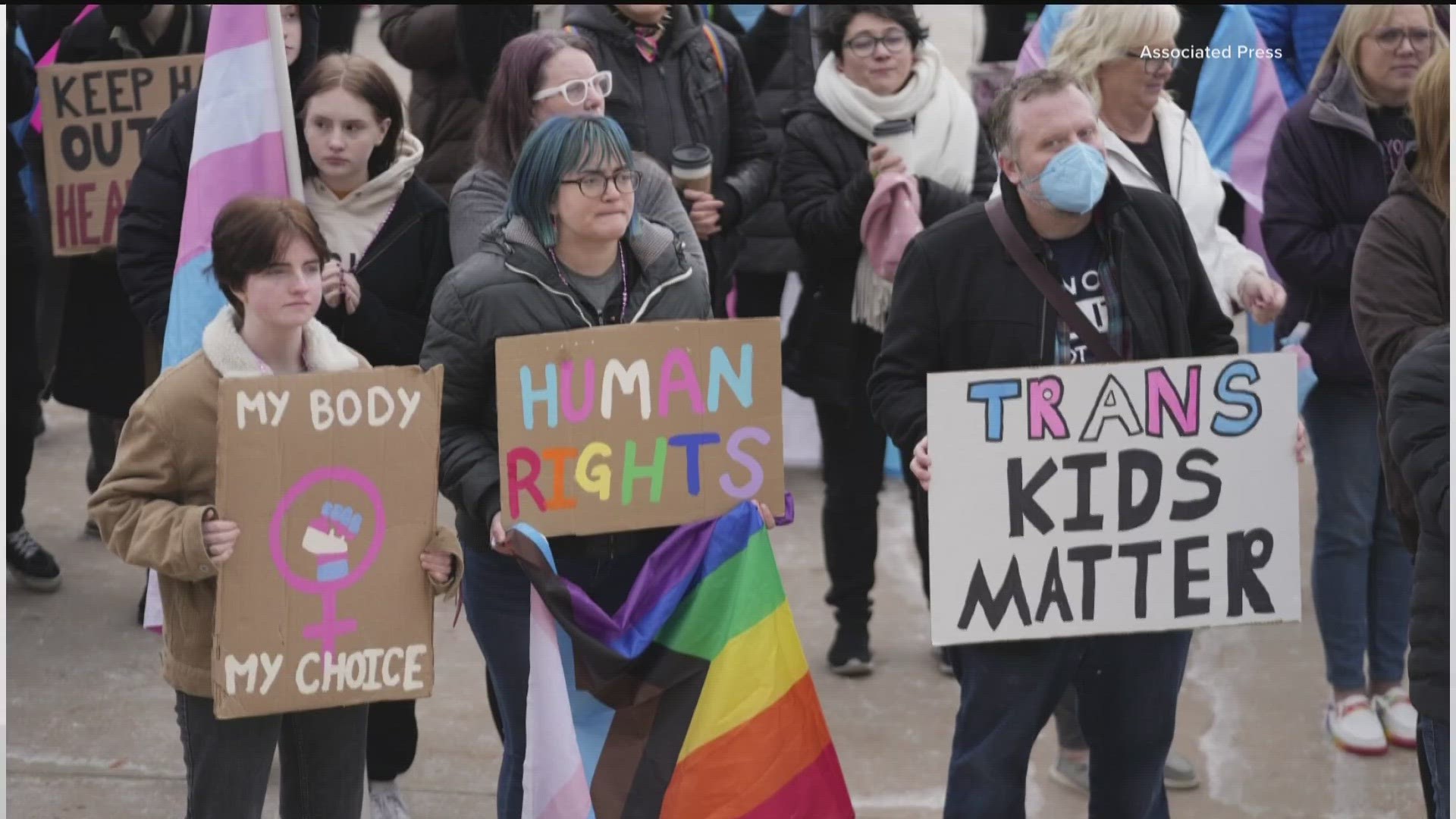ATLANTA — Lawsuits are on the way to try to overturn Georgia’s new law mandating bans on medical treatments, bans that impact transgender youth and their families.
Georgia Governor Brian Kemp signed into law, on Thursday, legislation that will ban most medical treatments and surgeries for transgender children, effective July 1.
The debate, and the fight, over the new law is just getting underway.
Here’s what’s next
ACLU Georgia is gearing up to challenge the new law in the courts.
“We're examining both our options in federal and state court, and we'll be reviewing that and preparing a strategy,” said Executive Director Andrea Young on Thursday. “Politicians should not be making health care decisions that parents, in conjunction with their physicians, are better equipped to make.... The law is a sledgehammer. And this is an area that requires the most delicacy, the most individualized treatment, and that is what is now being prohibited in the state of Georgia.”
Those who support the bans will continue to argue that the new law protects, as they describe it, possibly confused young people from themselves, and prevents doctors from taking advantage of them.
“What we’re doing here is, we’re preventing minors under 18 years old from having irreversible changes in their lives,” said Sen. Ben Watson, (R ), Savannah, who is a physician.
Physicians in Georgia who actually treat transgender youth-- physicians who prescribe hormone therapy, as medically necessary, as long as the children’s parents give their consent-- are evaluating what they will do.
If the bans take effect, as scheduled, on July 1, “We would face criminal charges for practicing medicine appropriately,” said Dr. Izzy Lowell.
Dr. Lowell’s telemedicine practice, QueerMed.com, based in Atlanta, serves patients in 25 states.
She said Thursday that about 20 percent of her patients are transgender youth.
"And that is growing because we are becoming one of the only providers, in many states we cover, one of the only providers left who will see patients under 18. Access has diminished and it's become even harder for people, for transgender, non-binary people, especially youth, to access care across the country."
As July 1 approaches, she said, “We’re adding extra slots, extra days, to be able to serve anybody who wants to be seen at our clinic."
And after July 1, she may offer other options to transgender youth and their parents.
“Patients who need care will need to travel out of the state of Georgia into another state--for example, Alabama, it is still legal to prescribe hormone therapy in Alabama for minors,” she said. “If they drive out of Georgia to a state where it's legal, and we're licensed in 25 states, then we can see them for a telemedicine visit and prescribe them a legal prescription for hormone therapy.”
As it is, under current Georgia law, Lowell said, transgender youth seeking hormone treatment and surgeries have always needed parental consent and more.
The young patients, Lowell said, “work with mental health, the school, their families, the community, everybody is involved in this. And any one of those people could say, ‘nope, we're not doing this.’ And then that child wouldn't be able to start on this treatment. It takes both parents’ consent, the support of the mental health provider, the thorough evaluation from a medical professional, from a physician or the medical provider. And then we start very slowly. Hormone therapy is a very slow process. We start with tiny doses. It doesn't happen overnight, just like puberty. It takes years and years for this person to go through puberty. And at any point along the way, that teen could say, ‘you know what, this isn't actually for me. This isn't what I wanted.’”
As it is, what’s next for Georgia could be in the courtroom, dealing with the same types of lawsuits, and possibly injunctions, that are challenging similar bans in other states, before the fate of the new law, here, is settled.

